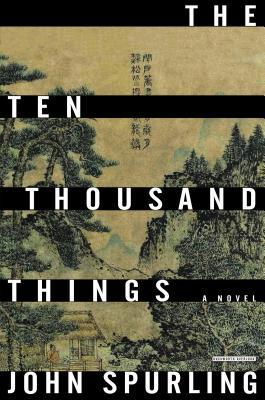This book is a literary masterpiece. Book is a natural blend of history and philosophy. Set in China in the middle of 14th century, it follows the life of low level [former] administrator, part freelance painter, named Wang, as he retires from active government duties under Mongol Yuan dynasty and tries to devote full time to landscape painting.
While Wang himself is a low-level bureaucrat, his is descended from late emperors of south Song dynasty, a Chinese dynasty that was replaced by Mongol Yuan dynasty founded by Great Mongol Khan Kublai in the middle of 13th century. Several members of Wang's family, including his famous grandfather, General Meng, freely accepted Mongol rule and served under "progressive" Kublai Khan.
Wang has no personal ambition to achieve higher status in Mongol government. He is neither pro-Chinese nor anti-Mongol. Mainly he cares about stability and economic prosperity. However, by the time Wang takes official 3 year leave of office to spend some time in his country estate, Yuan dynasty undergoes degradation and China is falling apart.
On one his travels Wang meets young monk named Zhu. Zhu had left his village after surviving black plague. Zhu is confused. He offers himself to Wang as a servant, but Wang cannot afford or has any need to take him. Wang gives to Zhu a piece of paper that happened to have a nationalistic, anti-mongol sentiments printed on it (actually, Wang has found this note but hidden it in his pocket to avoid any provocation with local mongol authorities).
As a story develops Zhu is that peasant boy, later leader of bandits, who will eventually found new Ming dynasty in China. This transfer of power from Mongols to native Chinese took decades and it was not always clear which rule ordinary Chinese preferred, especially after Zhu, as a new Emperor, periodically showed a paranoid behavior that invariable resulted in executions, including of old Wang himself.
This is a backdrop of the novel seen with the eye of Wang and people he encounters.
posted by David Usharauli

No comments:
Post a Comment